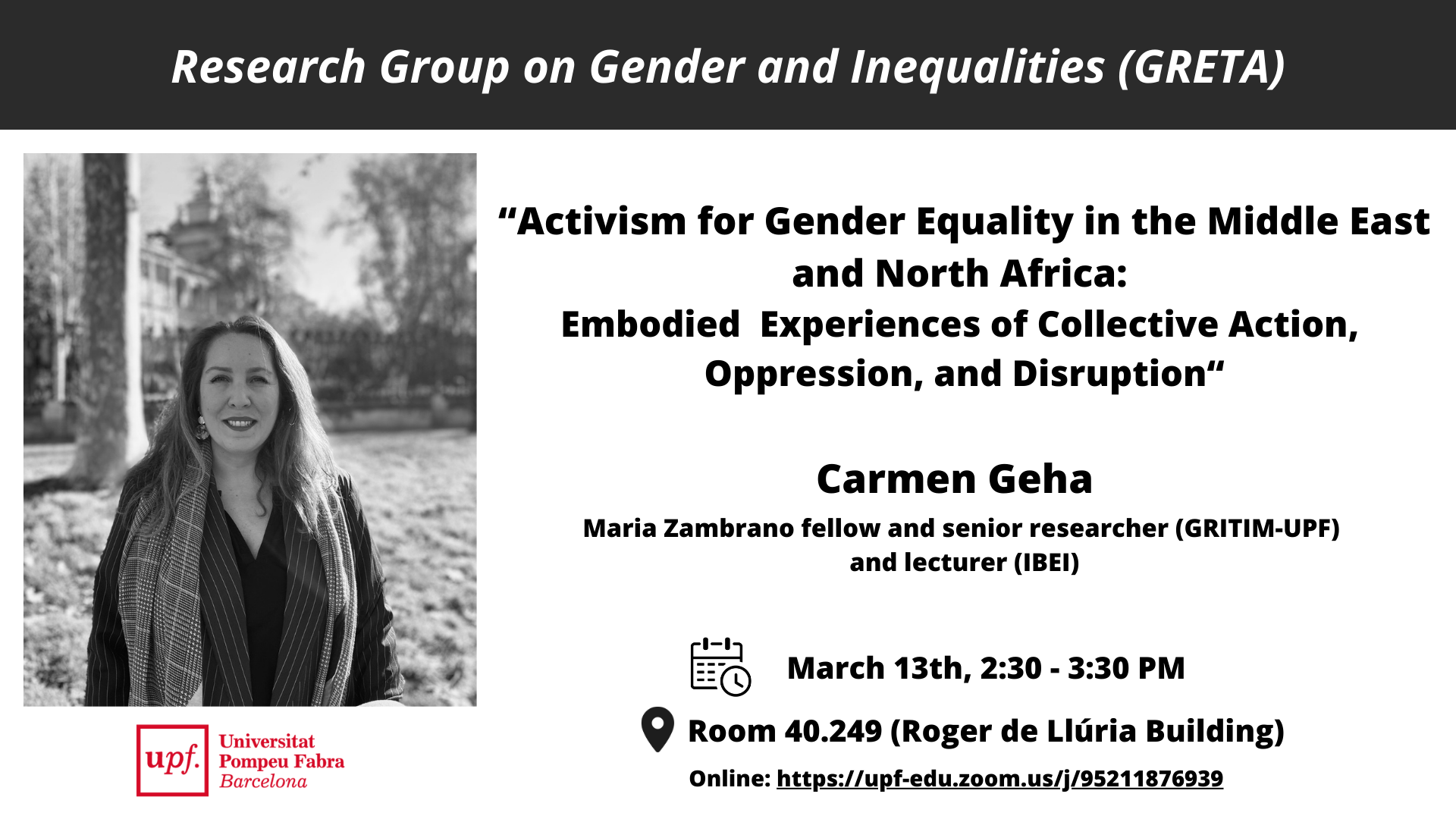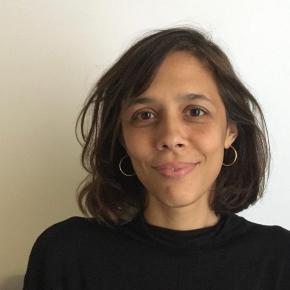Seminar: "Activism for Gender Equality in the Middle East and North Africa: Embodied Experiences of Collective Action, Oppression, and Disruption"
Seminar: "Activism for Gender Equality in the Middle East and North Africa: Embodied Experiences of Collective Action, Oppression, and Disruption"
Seminar: "Activism for Gender Equality in the Middle East and North Africa: Embodied Experiences of Collective Action, Oppression, and Disruption"

For our next monthly open seminar we will be hearing from our team member Carmen Geha. She is a Maria Zambrano fellow and senior researcher in gender and migration at GRITIM-UPF and she is also a lecturer in gender and development at the Barcelona Institute for International Studies (IBEI). Carmen is a Fulbright Scholar and has been a visiting scholar at Harvard University, the Institute for Advanced Study, the Watson Institute in Brown University, and the University of Witswatersrand in Johannesburg. She holds a PhD in International Relations from the University of St. Andrews. She is author of “Civil Society and Political Reform in Lebanon and Libya,” (Routledge, 2016) and has published articles widely including in Social Movement studies, Women Politics, and Policy, Journal of Refugee Studies, Middle East Law and Governance, Middle East Journal, and the British Journal for Middle East Studies. Carmen is co-founder and Managing Director of Soltara Consulting, a growing platform of experts specializing in diversity, equity, and inclusion policies in the Middle East and North Africa.
The presentation will take place on March 13th, 2:30-3:30 pm, in Room 40.249 (Roger de Llúria building). If you can´t attend in person you can join us online: https://upf-edu.zoom.us/j/
Abstract
An emerging global backlash on gender equality prompts us to look at how activists and collective movements can get repressed and disrupted. This talk focuses on the individual as the unit of analysis and is anchored in the experiences of activists in the MENA region who have spearheaded efforts for gender equality using various tactics of collective action. This is part of a research project that is itself an act of against the largely invisible labor, hopes, and dreams of countless individuals who have advanced gender equality in some of the most violent and repressive political systems in the world. These experiences help paint a picture and conceptualize how individuals embody politics through times of collective action, periods of oppression, and phases of disruption. The talk explores individual decisions for participating or withdrawing, with a focus on burnout and mental health as contributing factors to disruption of social movements.

